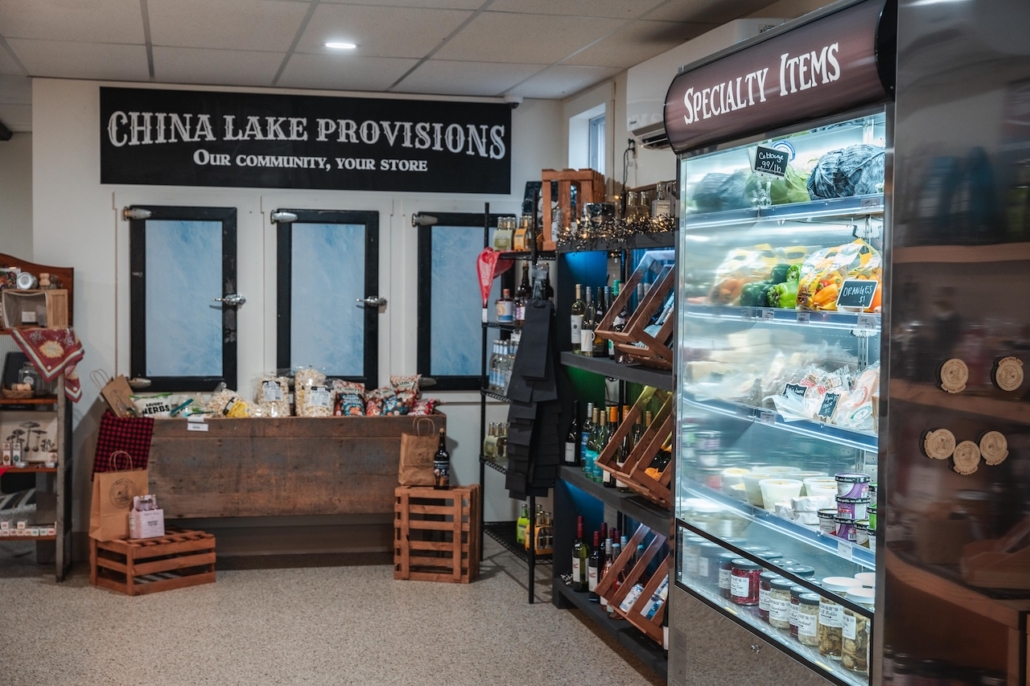COMMUNITY COMMENTARY: A closer look at question 3 on China ballot
by Paul Mitnik
Codes Enforcement Officer
Town of China
Question 3: Shall amendments to the Town of China Land Development Code, Chapter 2, Land Use Ordinance and Chapter 11 Definitions be enacted?
This following article is written so that residents of China may better understand the amendments that they will be voting on in the third ballot question. The amendments can broadly be divided into three major categories. The first of these pertains to the signs. China enacted language in their Land Use Ordinance in 2010 to regulate the size and amount of signs on their property and other issues pertaining to signs. However the new language did not grandfather existing signs and, in fact, had a sunset provision which required property owners to comply with the new regulations within ninety (90) days. The sunset provision was never enforced, and as a result most of the existing commercial businesses do not comply with Ordinance requirements. The proposed ordinance changes add grandfathering to all signs that existed in 2010 except operational items such as lighting and hold time for changing digital signs. If this is not enacted, many commercial signs in China will have to be removed or reduced in size, some of which have been in existence for decades.
The second item pertains to seasonal conversions. Some camps in the shoreland zone are only permitted to be occupied for seven months of the year based upon whether or not they were occupied year round from 1977 to 1981. Seasonal conversion permits must be obtained to occupy seasonal camps year round for those camps that were seasonal during this period. The state law for obtaining this permit requires the property to have full septic systems containing a tank and disposal bed adequately sized and functioning properly that meet setbacks to the lake high water mark, wells, and property line and buildings. China has a provision in their Ordinance which also requires both the lot to meet minimum lot size and the camp to meet the 100 foot water setback in order to obtain this permit. The amendment proposes to repeal these provisions in China’s Ordinance, since once the camps are built the septic system is really the main issue for water quality protection of the lake. If a property has an adequate septic system, staying in the camp another five months annually should not have any additional impact to lake water quality. The proposed changes will not affect when a property owner can visit their seasonal camp since the state rules do not require that the seven months be consecutive.
The third amendment is the adoption of the updated DEP requirements for 2015. This includes changes to expansions of non-conforming structures; adoption of the statewide timber harvesting standards; and new sections giving guidelines to hazard, storm damaged, or dead tree removal; revegetation requirements for properties in violation of clearing standards; and exemption to clearing standards. The expansion provision of these changes may be the most controversial and difficult to understand. The new standards use footprint of a building rather than the formerly used standards of volume and floor area. Floor area is a sum of the footprint of all stories.
The footprint is a more scientific way from a water quality perspective, since it is the footprint or the amount of impervious area that produces runoff which could potentially pollute the lake. The new expansion standards should level the playing field, since expansions for large structures will become more stringent but expansions for small structures less stringent. Currently what is allowed for expansions for large structures with multiple stories can be enormous, while the single story small structure is very limited in its size for expansions.
The Town’s TIF committee is planning a project on the causeway which addresses safety issues and runoff treatment. A fishing platform, wood plank trail, and phosphorus infiltration treatment system is planned for this area. A minor change was made to the ordinance to clarify that Town owned fishing platforms are a functionally water dependent use and are exempted from water setback requirements which is consistent with state law. Currently many people fish from the causeway on China Lake. Safety from automobile and boating traffic is an issue. The phosphorus treatment system will intercept sediment runoff that is currently entering the lake below the causeway and into the wetland above the causeway.
Responsible journalism is hard work!
It is also expensive!
If you enjoy reading The Town Line and the good news we bring you each week, would you consider a donation to help us continue the work we’re doing?
The Town Line is a 501(c)(3) nonprofit private foundation, and all donations are tax deductible under the Internal Revenue Service code.
To help, please visit our online donation page or mail a check payable to The Town Line, PO Box 89, South China, ME 04358. Your contribution is appreciated!





Leave a Reply
Want to join the discussion?Feel free to contribute!